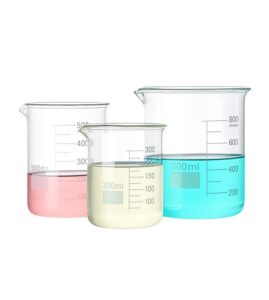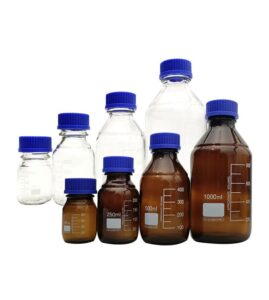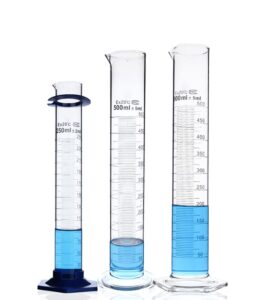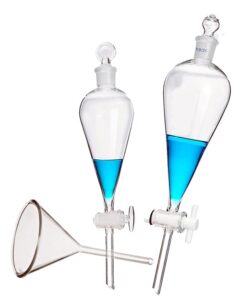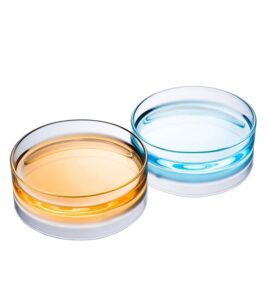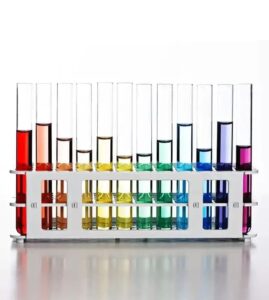Have you ever wondered where all the broken beakers and used test tubes go after they’ve served their scientific purposes? Can these fragments of research and discovery find a new life, or do they simply end up contributing to the growing mass of waste? How can we, as part of the scientific community or as environmentally conscious individuals, contribute to a more sustainable future by properly disposing of or repurposing lab glassware?
Eco-friendly management of discarded lab glassware is not just a possibility; it’s a necessary step towards a sustainable future. By adopting practices that prioritize recycling, reuse, and careful disposal, we can significantly mitigate the environmental impact of scientific research. These methods not only prevent harm to ecosystems and human health but also conserve valuable resources and energy.
Keep reading to uncover the myriad ways you can transform lab waste into an opportunity for environmental stewardship.
Understanding the Impact of Lab Glassware Waste
Lab glassware, once an emblem of scientific progress, can turn into environmental liability if not managed properly. The production, use, and disposal of glassware all have environmental footprints that need consideration. Breaking down the lifecycle of lab glassware helps identify key areas where eco-friendly interventions can make a significant difference.
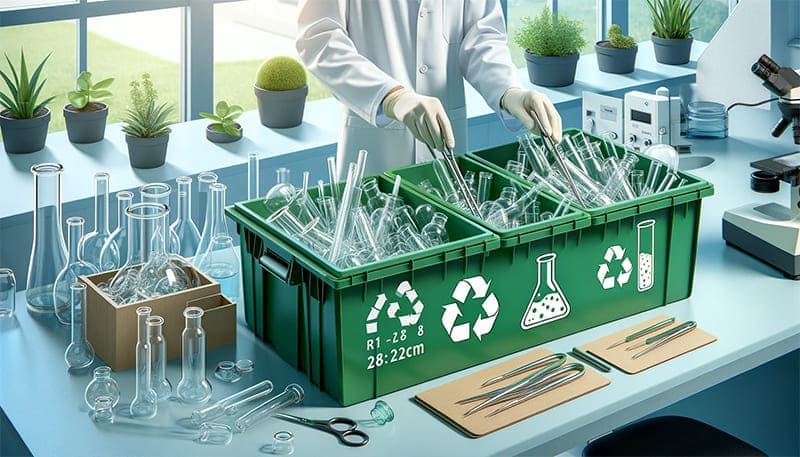
Eco-Friendly Disposal of Discarded Glass Instruments
In our continuous effort to protect the environment and ensure public health safety, properly disposing of discarded glass instruments has become increasingly important. The following guidelines offer a sustainable approach to manage these materials effectively, aiming to minimize their environmental impact.
Recycling and Reusing: A Dual Approach
Recycling is often the first thought when considering eco-friendly solutions for any waste, including lab glassware. However, not all glassware is created equal; some can be recycled easily while others may require specialized facilities. Identifying and segregating glassware based on its recyclability is crucial.
Reusing lab glassware can be even more sustainable than recycling. Simple interventions, such as repurposing slightly damaged but safe glassware for educational or decorative purposes, can extend the life of these resources. Encouraging a culture of reuse within scientific communities can significantly reduce waste.
Professional Recycling Services and Manufacturer Take-Back Programs
For glassware that’s beyond reuse, professional recycling services and manufacturer take-back programs offer a pathway for safe and efficient recycling. These programs ensure that glass is melted down and remolded, reducing the need for raw materials and energy used in creating new glassware. Engaging with these services not only helps the environment but often complies with local and international waste management regulations.
Handling Sharp Edges and Contamination: Safety First
The physical danger of sharp, broken glass and potential chemical contamination are serious concerns when disposing of lab glassware. Proper packaging and labeling of broken glassware, along with decontamination procedures, are essential steps in ensuring safety and environmental protection. Specialized waste handling facilities are equipped to deal with these hazards, turning dangerous waste into safely managed resources.
Segregation and Collection: Organizing Waste
Effective waste management begins with segregation. By separating glassware based on its condition, composition, and contamination level, you facilitate more efficient recycling and reuse processes. Implementing a well-organized collection system within laboratories can significantly streamline the disposal and recycling process.
Fostering a Culture of Environmental Responsibility
Beyond the physical management of waste, fostering a culture of environmental responsibility within the scientific community is vital. Educating lab personnel about the impact of waste and the importance of eco-friendly practices can lead to more sustainable behaviors. Encouraging research and investment into sustainable materials and methods can further reduce the environmental impact of scientific work.
Policy and Regulation: The Role of Governance
Governments and institutions play a critical role in managing lab glassware waste through policy and regulation. Implementing standards for waste management, offering incentives for sustainable practices, and funding research into alternative materials can profoundly influence how lab glassware is used and disposed of.
Adopting these eco-friendly practices for disposing of glass instruments is not only a step towards safeguarding the environment but also a commitment to future generations. By embracing recycling, careful handling, and regulatory compliance, we can significantly mitigate the ecological footprint of glass waste. Together, let’s work towards a cleaner, safer, and more sustainable world.
Economic Advantages of Sustainable Glassware Management
In the realm of scientific research, the management of lab glassware has significant economic and social implications. As we delve into the economic advantages and societal benefits of sustainable glassware management, it’s clear that the choices made in laboratories resonate far beyond their walls. Let’s explore how adopting eco-friendly practices can lead to broader economic savings and a positive cultural shift towards sustainability.
Financial Impacts and Efficiency in Glassware Recycling
The economic implications of recycling and reusing lab glassware are substantial and multifaceted. Initially, investing in recycling programs may seem costly, but the long-term benefits often outweigh these costs. Efficient recycling reduces the need for raw materials and energy, translating into significant cost savings. Furthermore, it minimizes the environmental impact fees associated with waste disposal. The recycling sector also contributes to economic growth by creating jobs, from collection to processing and remanufacturing. A robust recycling industry can stimulate local economies and drive innovation in waste management technologies. By reducing waste, laboratories can also avoid costs associated with hazardous waste disposal and potentially reduce their expenditure on new glassware through reuse initiatives.
Societal Benefits of Eco-Friendly Laboratory Practices
Adopting sustainable practices in laboratories goes beyond environmental benefits; it significantly influences societal attitudes towards recycling and sustainability. As centers of innovation and education, laboratories can lead by example, demonstrating the value and feasibility of sustainable practices. This leadership can inspire other sectors to adopt similar practices, fostering a culture of environmental responsibility across communities. Moreover, when the public sees the scientific community committing to sustainability, it can increase trust and interest in science, potentially leading to more public support for environmental initiatives.
The visibility of sustainable practices in laboratories can also educate and inspire the next generation of scientists and citizens, emphasizing the importance of environmental stewardship in all aspects of life. By implementing eco-friendly disposal and recycling of lab glassware, laboratories can contribute to a broader societal shift towards sustainability, highlighting the role that every individual and organization plays in protecting our planet.
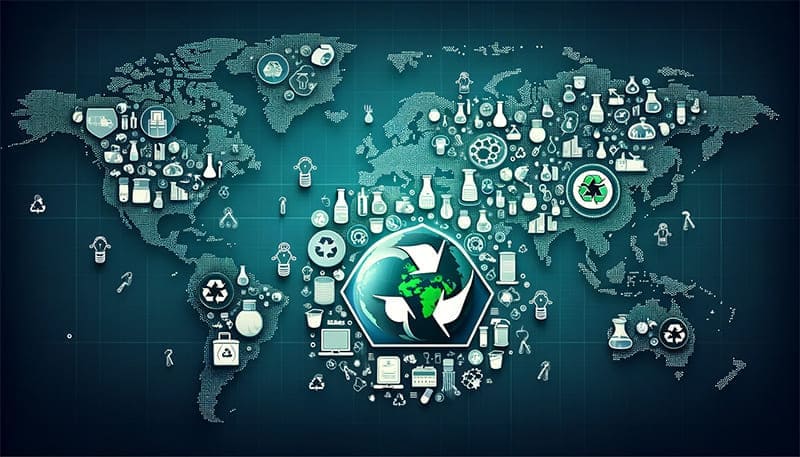
Global Approaches to Lab Glassware Disposal
In exploring the disposal and recycling of lab glassware, it’s vital to recognize the global diversity in practices and challenges. From stringent international standards to the pressing needs of developing nations, here’s a concise look at how the world is addressing this issue.
Diverse International Standards in Glassware Management
Different countries have varied approaches to managing lab glassware disposal and recycling, largely influenced by their regulatory frameworks and environmental policies. Developed nations often have stringent regulations and sophisticated systems for handling lab glassware, including recycling and hazardous waste management. For instance, many adopt guidelines under international agreements like the Basel Convention to manage and reduce hazardous waste. These practices and policies ensure that lab glassware is disposed of safely and sustainably, minimizing environmental harm.
Infrastructure and Resource Constraints in Glassware Recycling
Developing regions face distinct challenges in managing lab glassware waste, primarily due to limited infrastructure and resources. Often, there’s a lack of specialized facilities for safe disposal and recycling, leading to improper handling and increased environmental risks. Addressing these challenges requires a focus on building infrastructure, enhancing regulatory frameworks, and providing education and training. Solutions may include international aid, technology transfer, and promoting local recycling initiatives to develop more sustainable waste management systems.
Ultimately, bridging the gap between various global practices is key to enhancing lab glassware disposal and fostering a more sustainable future in scientific research.
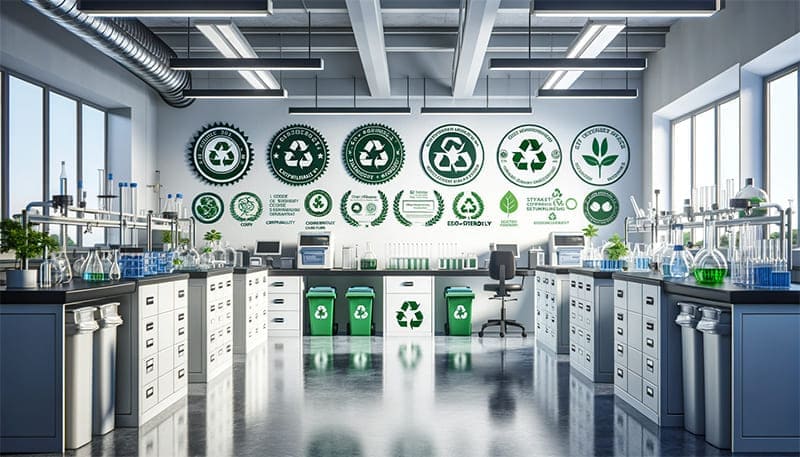
Sustainable Lab Waste Management: Best Practices and Certifications
In the quest for sustainability, laboratories across the globe are increasingly seeking ways to manage waste more effectively. This guide provides a concise yet comprehensive look at the essential strategies, including the adoption of rigorous waste management policies and the pursuit of recognized certification programs.
Streamlining Lab Waste: A Guide to Best Practices
For laboratories looking to enhance or initiate waste management practices, it’s essential to have a detailed guide or checklist that encompasses all aspects of glassware disposal. This includes proper segregation of recyclable and non-recyclable materials, safe handling and decontamination of used glassware, and procedures for packaging and transporting hazardous waste. By following comprehensive policies, labs can ensure they are not only compliant with regulations but also contributing to environmental sustainability.
Elevating Standards: Certification in Lab Sustainability
Certification programs serve as a benchmark for laboratories committed to sustainability and efficient waste management. These programs assess and recognize labs that meet high standards in reducing, reusing, and recycling waste, including glassware. By obtaining such certifications, laboratories can demonstrate their commitment to best practices in environmental stewardship and continuous improvement, gaining credibility and setting an example in the scientific community.
As we navigate the complexities of lab waste management, it’s evident that a combination of detailed guidelines and industry certifications can lead to a more sustainable and accountable practice. By embracing these strategies, laboratories not only contribute to environmental conservation but also elevate their operational standards, setting a precedent for excellence in the scientific community.
Conclusion
As we conclude this exploration into sustainable lab glassware management, remember that each step towards eco-friendly practices makes a significant impact. Let’s commit to recycling, reusing, and innovating, not just for compliance or cost savings, but for a healthier planet. Embrace these strategies, seek certifications, and become part of a global movement towards sustainability. Your actions can inspire others and contribute to a legacy of environmental stewardship in the scientific community. Join the journey towards a greener future today!


